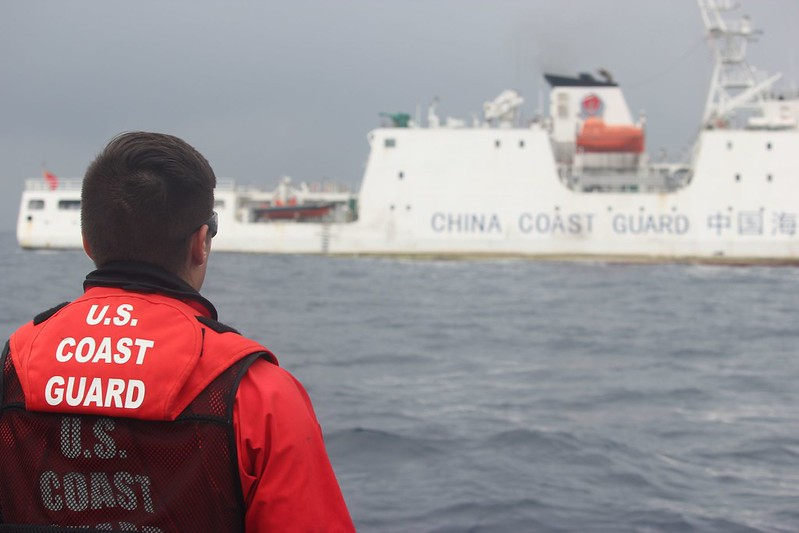Lawfare at Sea in East Asia: Local Tensions, Global Implications

Practical information
Since the end of 2019, more than 20 Notes Verbales have been submitted to the UN Commission on the Limits of the Continental Shelf regarding the claims in the South China Sea (SCS).

Countries including France, Japan, Germany, the UK, the US and Australia issued their own notes stating that China’s claims to ‘historic rights’ in the SCS are incompatible with the internationally-agreed UN Convention on the Law of the Sea (UNCLOS). Meanwhile, China recently authorized its Coast Guard to use force, raising concern among its neighbors.
This webinar will discuss lawfare practices in the East and South China Sea from a European and Asian perspective and identify the ways to better counter these practices.
This webinar will be held in English.
PROGRAMME
Brief initial remarks by the speakers will be followed by an interactive discussion led by the Chair. Q/A from the audience will be included in the discussion.
Chair and discussion leader: Céline PAJON, Head of Japan Program, Center for Asian Studies, Ifri
- Challenges to the Rule of Law at sea in East Asia: A Japanese perspective
Koji TSURUOKA, Former Ambassador of Japan to the United Kingdom
- Challenges to the Rule of Law at sea in East Asia: A French perspective
Christophe PRAZUCK, Director, Institut de l'Océan de l'Alliance Sorbonne Université and Former Chief of Staff of the French Navy
- How to counter lawfare at sea in East Asia?
Jane CHAN, Senior Fellow, Coordinator of Maritime Security Programme, IDSS, RSIS, Singapore
Related Subjects
Other events

EV Supply Chains for Japan and Europe: Strengthening Economic Security
Economic security aims to ensure the resilience of supply chains for key industries: the case of electric vehicle production in Japan and Europe will be discussed.






